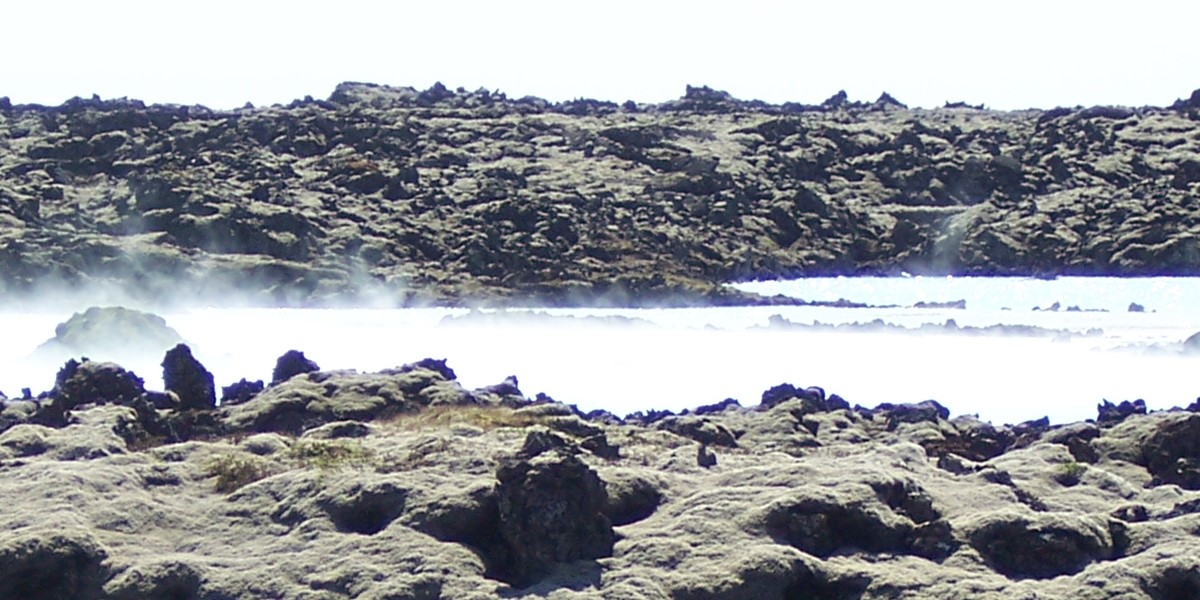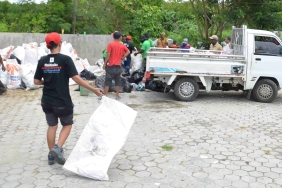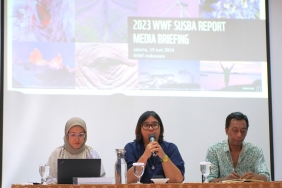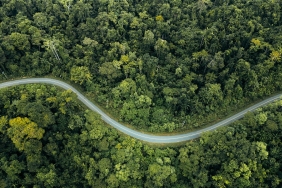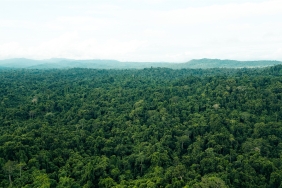WWF-INDONESIA: NOW IS THE TIME FOR GEOTHERMAL ENERGY TO BE THE LONG-TERM PRIORITY OF THE NATIONAL ENERGY AGENDA
Jakarta — Today (5/7), WWF-Indonesia released a report captioned “Igniting the Ring of Fire: A Vision for Developing Indonesia’s Geothermal Potential” – an essay that elaborates the challenges and opportunities involved in the development of geothermal energy in Indonesia, as well as gives a picture on their possible workarounds.
Indonesia has the world’s largest potential for geothermal power plants, measuring 29 Giga Watt total at minimum. Of this whole potential, only 1.2 Giga Watt is currently installed. The national energy policies had specified that geothermal energy is aimed to contribute 5% to the national power needs by 2025, but as of now, geothermal energy contributes but a meager 1% and is growing slowly.
Various obstacles and difficulties stand in the way of geothermal development, ranging from those in terms of policies and regulations, organization of institutions, sector logistics, regional autonomous policies, human resources, good governance issues, to technical difficulties such as: data accuracy, tender process, involving local residents in the construction, price negotiations, official permits, and others.
Nazir Foead, Director of Conservation WWF-Indonesia, emphasized, “It is time for the development of renewable energy sources to be the long-term priority of the national energy agenda. As the economy improves, Indonesia’s power needs are also rapidly rising, at a rate of 7% annually. These needs are mostly satisfied using fossil fuel, which is becoming increasingly scarce. We have an abundance of renewable energy sources, why are we not developing them? This is no longer a matter of choice, this is a necessity.”
WWF-Indonesia, as a conservation organization reaching 50 years of age this year, is currently engaged in the program “Geothermal Ring of Fire.” This program, developed in collaboration with WWF Philippines and WWF Climate & Energy Global Initiative, is expected to be able to encourage significant progress towards eventual utilization of renewable energy sources, especially the long-term production and utilization of geothermal energy in Indonesia and the Philippines as early as 2015.
“Geothermal energy as renewable energy source is capable of sustaining national energy needs in the long run due to, among others, its low emission value, that it requires less space than other renewable energy sources, that it reduces dependency on fossil fuel as source of electricity as well as diminishing the need for government subsidy,” explains Nyoman Iswarayoga, Director of Climate Change and Energy WWF-Indonesia.
He adds, “The nature of geothermal energy; that it is site specific, cannot be stored in reserve and cannot be transported over great distances, renders it completely non-viable as an export commodity, therefore making it resistant against global energy competitions and price fluctuations. Additionally, development of geothermal energy would create new jobs that would improve the quality of life and economic productivity of the surrounding residents.”
WWF sees geothermal energy as a low-emission and environment-friendly renewable energy source. In developing it, the following aspects need to be considered:
- Utilization of geothermal energy must pay heed to protection of nature and the major points of conservation (Biodiversity and native habitat, spatial arrangement, unique ecosystem, environment service, as well as the well-being of local residents). Thusly, strategic evaluation is necessary in order to minimize environmental damage and maintain natural conservation.
- Considerations of social, economy, and environmental aspects need to be integrated into the development project’s action plan to anticipate against possible risks that could threaten project survivability.
- Acknowledge the rights of local residents by inviting their participation from the preparation stage up to the execution.
To participate in encouraging continuous development of geothermal energy and support the viability of Indonesia’s long-term energy reserves, WWF-Indonesia invites stakeholders to partake in monitoring and evaluating the projects, which is done, among others, by involving Bappenas (Ministry of National Development Planning), National Energy Council, Ministry of Energy and Mineral Resources, Ministry of Finance, Ministry of Forestry, Ministry of Environment, Ministry of National Affairs, Regional Government, PT PLN (Persero), Geothermal Development Institutions and Geothermal Energy Association of Indonesia, academia, and other independent civilian organizations.
Full report can be downloaded at: http://www.wwf.or.id/berita_fakta/publications/?25521/Igniting-the-Ring-of-Fire-A-Vision-for-Developing-Indonesias-Geothermal-Power
Resource Persons:
- Nyoman Iswarayoga, Director of Climate Change and Energy WWF-IndonesiaEmail: niswarayoga@wwf.or.id, Mobile: +62-811 128 4868
- Indra Sari Wardhani, Coordinator, Ring of Fire Indonesia, Climate Change and Energy WWF-Indonesia, Email: iwardhani@wwf.or.id; Mobile: +62815 166 2198
Media Contact:
Verena Puspawardani, Campaign Coordinator, Climate Change and Energy WWF-IndonesiaEmail: vpuspawardani@wwf.or.id, Mobile: +62-813 982 72 690
NOTES FOR THE EDITOR
About WWF’s Ring of Fire Program
The program is intended to encourage long-term implementation of geothermal energy in the Southeast Asia region, spearheaded by Indonesia and the Philippines. It’s expected to be able to stimulate significant progress towards the eventual utilization of all types of renewable energy sources, especially production and long-term utilization of geothermal energy in Indonesia and the Philippines by the year 2015. We will base our approach on the WWF’s ability to arrange cooperation between the public and private sector, combined with our expertise over the field. One of the roles of the WWF in this program is as catalysts that will hasten the development of geothermal energy regionally, especially those countries with high geothermal energy potential and abundant natural resources, as well as supporting innovation and the growth of green economy.
About WWF Indonesia
WWF is an global independent conservation organization founded in 1961 in Swiss, with almost 5 million supporters worldwide and a network operational in more than 100 countries. In Indonesia, WWF has become the entity Yayasan WWF Indonesia and is engaged in more than 25 field sites and 17 provinces. Our mission is to save biodiversity and minimize the ecological footprint of human activities. For more information, please click www.wwf.or.id

